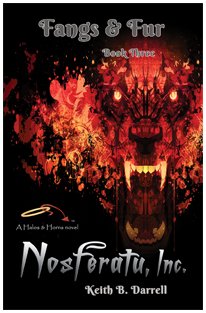“You’ve been Panda-slapped,” my SEO guru explained to me.
Understand, this was the man who, when Facebook was a distant rival to MySpace,
had “poked” me and, failing to get my attention, “thrown a cow” at me. So, being
Panda-slapped sounded like a fun new app; it wasn’t.
I was reviewing the Web traffic on several of my sites and
had consulted him when I had noticed a disturbing coincidence. From January to
June, traffic was relatively stable on all the sites; then, it dropped off
about 30% in July – on all the sites. Still, it was summer; maybe people
decided to visit the beach instead. But, in August, traffic fell another 60%
and remained down 90% in September from previous levels. Not just on one site,
but on all my Websites!
The laudable idea was to eliminate spam sites by designating
them as “low quality”. The problem is, Google lacks the proper criteria to tell
a spam site from a legitimate site, so it relies on certain factors that have
resulted in “collateral damage” – legitimate Web sites being lumped in with the
content farms. E-commerce sites are particularly at risk of being
miscategorized. Estimates are more than 40% of all Websites have been affected,
so far. Some businesses have lost so much traffic, they fear bankruptcy.
SEO blogger Mark Munroe writes: “Panda is, by far, the most
significant change in the algorithm I have seen in the 8 years I have been
optimizing for search! New sites that get off to the wrong start can have their
domain poisoned from and they will never know.
Businesses that have been on the web for years can be destroyed
overnight.” He adds, “this went far beyond the (content farms). Most Q&A
sites, almost all the shopping comparison engines, travel, automotive, local,
ecommerce, UGC dominated sites, large dynamic sites as well as small sites with
a collection of completely unique content” are affected.
For example, Panda penalizes a site if it lacks repeat
visitors. One of my books has its own Website. People come to that site for
information about the book, click the link, and buy it. They have no reason to
return after they’ve purchased the book. The site acts as it should and the
purchaser is happy; but since the purchaser never returns (remember, it’s the
only item for sale on the site), Panda penalizes it as a “low quality” site.
Blogger Adam Audette, of SearchEngineWatch writes, “Panda is
a profound change to Google’s algorithm, and it's no surprise that there are
sites out there being hurt that may not deserve it. Panda has left sites starved
and depleted of traffic, crushed in its wake.
There is too much bloodshed out there. I don't remember a Google
algorithm that has done so much damage – so much collateral damage.”
Collateral damage. Do no evil. Did I mention Google Panda
reportedly shows a marked preference for brands (Big Companies, like Amazon)
and paid advertisers? It’s only the small business owners who need fear Panda;
you know, those folks trying to stay afloat in the worst economy since the
Great Depression. The ones who work from small storefronts or even their
kitchen tables.
“Businesses that have been on the web for years can be
destroyed overnight.”
Collateral damage.
Do no evil.
Next: Part 2
















































No comments:
Post a Comment